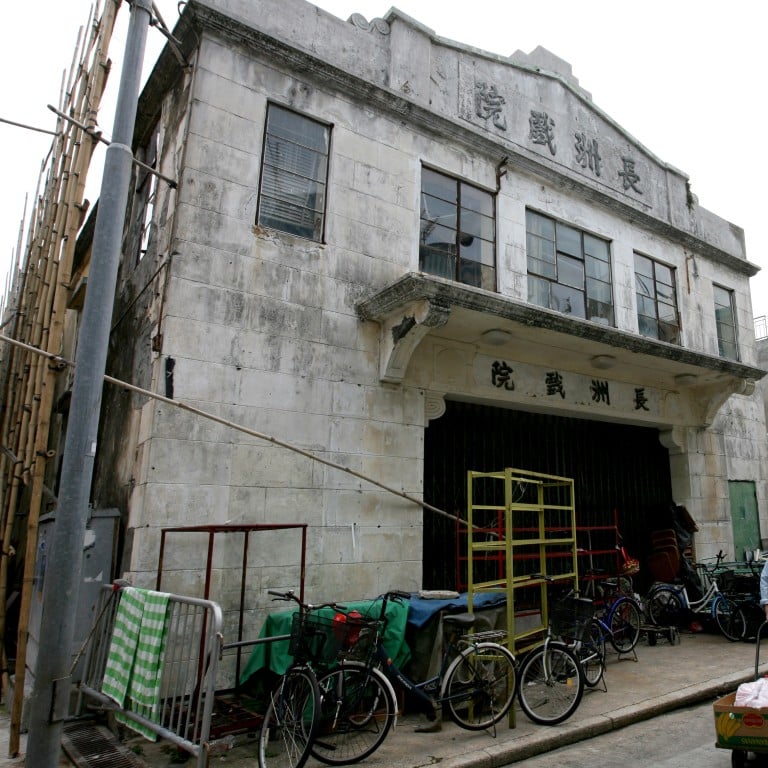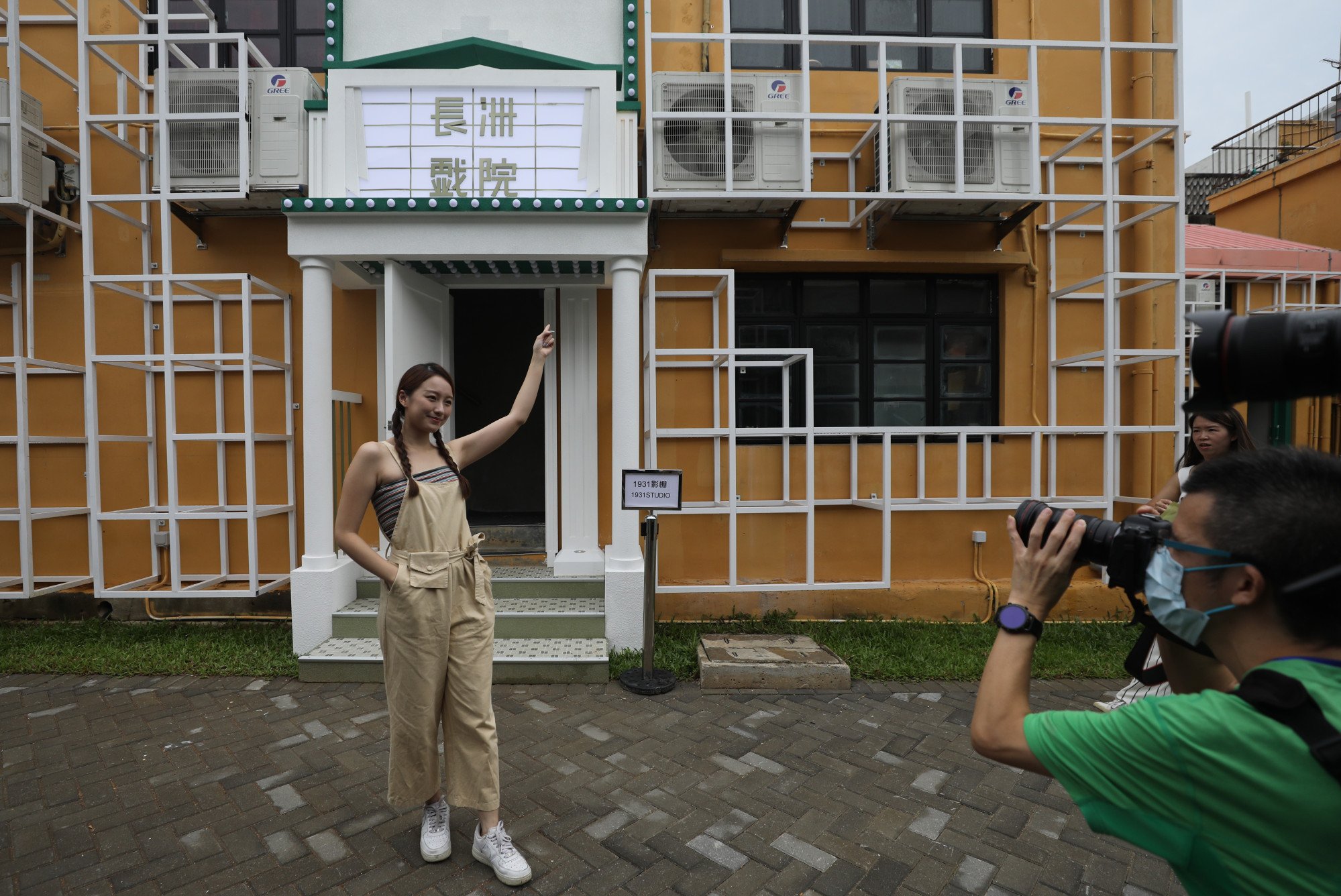
Hong Kong pre-war cinema to be turned into restaurant celebrating Cheung Chau’s history and culture
- Long-abandoned venue screened films from 1931 to 1997 and is one of city’s two remaining cinemas from pre-war era
- Cheung Chau Culture Company says renovation project is part of revitalisation plan costing hundreds of millions in Hong Kong dollars
One of Hong Kong’s two remaining pre-war cinemas will be revitalised into a restaurant that will open in 2025 and commemorate the history and culture of Cheung Chau.
The long-abandoned Cheung Chau Cinema, which the government has listed as a Grade III historic building, was established in 1931. The 600-seat venue screened Cantonese and Western films until it closed in 1997.
The renovation project was announced by the Cheung Chau Culture Company on Friday as part of the second phase of a revitalisation plan, both stages of which have seen hundreds of millions of Hong Kong dollars invested.
A multicultural park next to the cinema is set to open next Monday as part of the first phase, while the cinema’s main block will be turned into a Chinese-themed restaurant and launch in 2025.
Great escapes: Hong Kong’s best outlying-island guest houses
“As there are few big restaurants that can hold many residents simultaneously, we have decided to change the cinema into a restaurant to satisfy the island’s need,” company CEO Eric Chiang Chun-wai said. “We hope this new attraction can drive an influx of visitors to Cheung Chau.”
The company said workers had recovered pieces of pottery dating back 5,000 years during the restoration process for the cinema, leading to a three-year exploration that unearthed more than 3,000 items.
“The people and material resources needed at the time caused us to spend an extra eight-digit sum of money on the project,” Chiang said. “The conservation of relics requires advanced skills, or they could be quickly eroded or damaged. Therefore, it is not easy for us as a private organisation to showcase the real potteries.”
The company CEO said he hoped cooperating with authorities would mean the artefacts could be replicated using 3D printing and the copies could be publicly displayed in two years’ time.

Chiang said authorities had provided assistance and professional advice during the restoration process, adding the company planned to apply for government funding after the grand opening in 2025.
The business had also spent a lot of resources on strengthening the building’s structure and conserving its original facade, he added.
Chiang said the project sought to restore the cinema to its former glory by organising film-related activities, as well as using the venue to promote Cheung Chau’s history and traditional culture.
Expressing his support for the renovation, an island resident surnamed Wong said he remembered paying only HK$3 (38 US cents) as a boy to watch Bruce Lee films at the cinema with his friends.
“It’s hard for me to get used to life without this cinema … but I will still try the restaurant,” the 61-year-old fisherman said.
Cheung Chau pirate attack: what really happened in 1912 raid
“It will be a good place for me to gather with my neighbours,” said Siu, another resident of the island.
CEO Chiang also noted the company had originally intended to develop the land for residential use, but later applied for it to be set aside for commercial purposes.
The multicultural park created under the first leg of the scheme spans 3,530 square metres (38,000 square feet) and consists of a cultural hub, information centre, piazza and a studio offering activities such as workshops and outdoor film screenings.
Ticket prices for activities will range from HK$128 to HK$268 during the trial period, before going to between HK$180 and HK$348.

